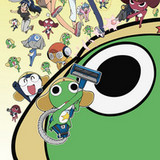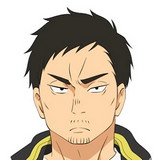#INTERVIEW: The Best Mecha Anime of 2020 is a Podcast
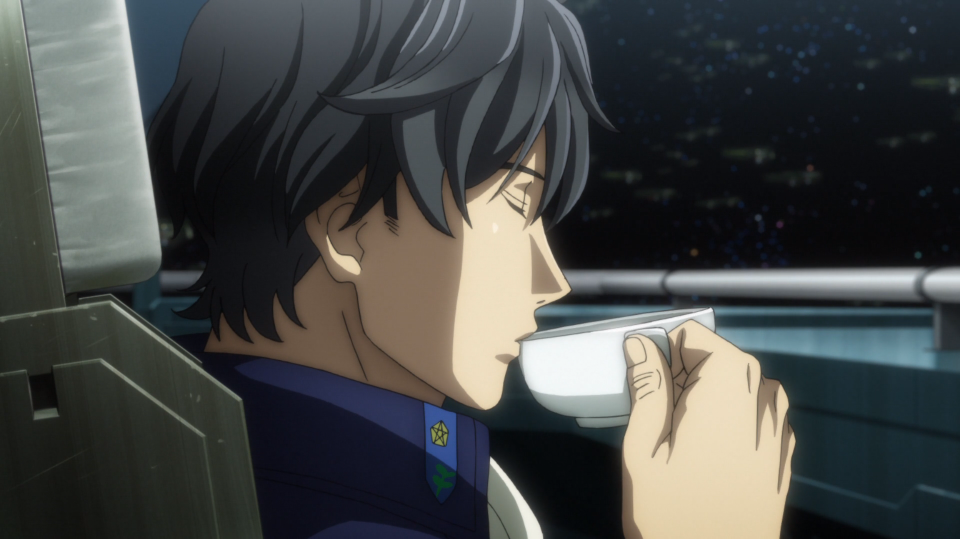
“#INTERVIEW: The Best Mecha Anime of 2020 is a Podcast”

It begins with a heist. As the conniving nobles of Stel Kesh marshal their forces against the war machine of Stel Apostolos, the hapless scion of empire Clementine Kesh makes a cunning plan. With the help of prisoners under her control — a pirate, a soldier, a former revolutionary — she plots to infiltrate and commandeer the mobile battle fortress Fort Icebreaker. Not for the good of her Stel, as her brilliant and cruel mother expects. But for her own use, to seize control of a house she has always revered and resented. Miraculously, Clementine and her prisoners succeed, taking Icebreaker for themselves. But fog rolls over the hills, and with it come monsters: the Divine Motion, living holy machine of Apostolos, and its cursed army of immortals known as the Black Century. Can Clementine and her squad of chained misfits, skilled as they are on the field, overcome a swarm of undead giant robots?
You might think from this description that we’re talking about the new Gundam, or a fan-made scenario for the videogame BATTLETECH. But no, this is a podcast, the PARTIZAN season of long-running actual play podcast Friends at the Table. Each week, the cast work together to flesh out the story of a crumbling empire, the lives of its distant subjects inhabiting the planet Partizan, and how these subjects change as their world does. It is a no-holds-barred giant robot drama at a time when mecha anime is a rarity. A tale that synthesizes the melodrama and intense battles of Mobile Suit Gundam, the political debate of Legend of the Galactic Heroes, and just a bit of Neon Genesis Evangelion’s shocking bio-religious imagery. There’s sadness, hilarity, amazing fights, and scene after show-stopping scene where members of the cast commit fully to their characters to make impossible choices.
Just like anime is a team effort, PARTIZAN is collaborative content. The guiding hand of game master and games critic Austin Walker, the music of composer and Fallen London contributor Jack de Quidt, Ali Acampora’s sharp editing, and their excellent roleplaying together with the talents of Sylvia Clare, Art Martinez-Tebbel, Janine Hawkins, Keith Carberry, and Andrew “Dre” Lee Swan. Every single one of these people commits to the world, their character, and whatever choice would be the most “interesting” for the story, rather than for power-gaming. Just like Yoshiyuki Tomino’s work on Gundam would be nothing without the input of industry luminaries like Yoshikazu Yasuhiko, Kunio Okawara, and Ichiro Itano, PARTIZAN is made what it is through everyone’s input. That is, a fantastic story composed by folks at the top of their game worthy of comparison to any of its influences. The best mecha anime of the year is a podcast.
With this in mind, I reached out to the Friends at the Table crew after the end of its recent Millennium Break arc to better understand their creative process. Their game master, Austin Walker, was kind enough to answer my questions via e-mail, with a few other players pitching in, as well. The following questions and answers are lightly edited for clarity and content. They are as follows:
Which anime served as an influence when creating the world of PARTIZAN? How does its focus differ from COUNTER/Weight, Friends at the Table’s first season featuring mecha? Are there non-anime giant robot stories (like BATTLETECH) that served as an influence?
Austin: At first I thought that this would be a tough question: How do I even start to list things like this? Then I remembered that a full year ago now, when I first started planning the season, I started a brainstorming doc by listing a set of inspirations (which were of course added to over the course of pre-production). The anime on that list were Legend of Galactic Heroes, Mobile Suit Gundam Thunderbolt, 08th MS Team, the first season of Code Geass, and the good parts of ALDNOAH.ZERO. Harsh but fair, I think. [Ouch! You’ll make Slaine cry if you aren’t careful. -Adam]
The list also includes references to games, art, philosophy, and historical events, including The Imperial Radch Trilogy, A Memory Called Empire, Valkyria Chronicles, BATTLETECH, Armored Core, Legend of the Five Rings, Tie Fighter, Crusader Kings 2, the character art from Coup, Jakub Rozalski’s 1920+ series, Theses on the Philosophy of History, Civilization and Its Discontents, The Eighteenth Brumaire of Louis Napoleon, Pride and Prejudice, the 30 Years War, the Warring States Period(s), and the Westphalian Peace.
BATTLETECH skyrocketed up that list after the 2018 game came out and solidified so much of the vibe I wanted, especially with the incredible cinematics and music. I think I must’ve linked the game’s incredible intro to the cast of the show ten times.
There are also a ton of things that became touchstones once the whole crew was talking about the season, or which have become inspirations along the way. Evangelion obviously came back into the public consciousness last summer, so elements of that were on our minds in some ways. I’ve been rewatching Mobile Suit Gundam Wing thanks to The Great Gundam Project and that’s definitely squeezed its way into the season, too.
And you know, the times we’re living in. How could that not shape anything right now?
With the exception of Gundam, giant robots have fallen out of fashion in the anime industry over the past few years. This is due to a combination of factors: the rate at which skilled mechanical designers are retiring, the industry’s difficulty in training new animators in these skills, and the changing tastes of audiences. Do you believe that the genre’s fate is deserved, or that mecha shows deserve another shot in the spotlight?
Austin: I don’t think that any genre’s fate is “deserved,” in that I don’t think success or failure in a market is some objective mark of quality. Many things fail to find an audience for reasons that have nothing to do with the artfulness on display, the effort of the creators, or the relevance or depth of thematic content.
Likewise (and as you said in the question), the reason for success is multifaceted and overdetermined. There is not one reason why, for instance, isekai seems ascendant right now. (Or, I should say, a particular type of isekai). Nor does something being in or out of trend preclude the ability for breakout works or shows that will one day become influential or critical for the development of new material.
All of which is to say that despite being a big fan of the genre, I’m not too put out by it not being the center of anime fandom’s collective attention right now. The wheel turns, and I expect that mecha shows will have their time in the spotlight again in the future — and hell, that might be because of a show (or animation technique or technology) that I don’t even like!
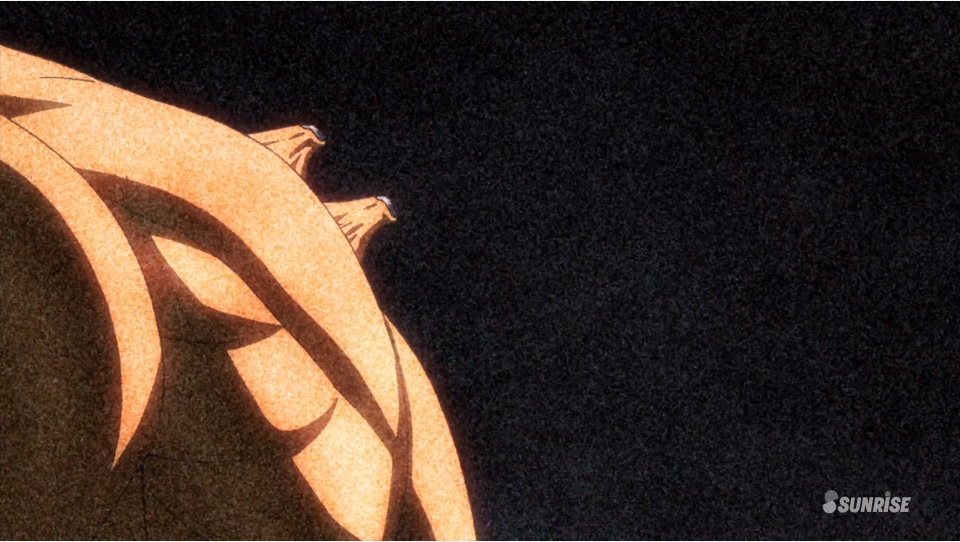
There’s a phenomenon that former anime blogger ghostlighting referred to as “remembering love” —when anime pays homage to earlier works so as to honor the past. Some examples might include how the Renton Runs Away storyline in Eureka Seven subtly reworks the arc where Amuro runs from White Base in the original Mobile Suit Gundam, or how the flame dragons in Promare riff on animator Yoshinori Kanada’s love of dragon-shaped effects animation. PARTIZAN (as well as earlier seasons of Friends at the Table) argues that clinging to past glories is futile and that imagining a new future is not only important but necessary. But are there ways that PARTIZAN (and its Tomino-esque naming sense, begun in earlier seasons of the show) “remembers love” as well?
Austin: Ironically, I think you’ve identified the biggest way in which we “remember love.” How better to engage with the work of Tomino and Gundam than to argue that “imagining a new future is necessary”? What is at stake in Tomino’s Gundam is how we imagine better futures, what we are (and aren’t) willing to do to achieve them, and how possibility is restricted by systems of power.
The core of the (often complex and contradictory) story of the newtype is that we are born into the world with the capability to overcome difference and connect to each other through a power of collective understanding. This is then drilled out of us so severely that the only thing that can make it return is trauma, technology, training, or the luck of history. (This is why children are the center of so much of Gundam, and why despite its bad reputation, Victory Gundam is so essential in understanding his work writ large).
I think our work owes a lot to Tomino’s in that regard, and likewise, I think both Gundam and Friends at the Table (and countless other things) are in dialog with the concerns of politics and philosophy since the mid-century. How do we do better? How do we ensure society does not charge further into fascism? How does power function? These are big questions that undergird Gundam as much as Macross as much as Evangelion —though each offers different answers, for sure.
Beyond all of that, there are lots of other examples of “remembering love” in our show, too. The idea of the poetic cipher system that shows up in the Orzen arc is a nod to Arkady Martine’s novel A Memory Called Empire. There are unconscious or ad hoc references, think about all the Hideo Kojima stuff we’ve stumbled into throughout PARTIZAN. The improvisational nature of Actual Play podcasts lets the mind wander, and you end up reaching toward things you might not ever choose to reference if you were working in a more iterative medium.
According to Matt Alt in his recent book Pure Invention, several members of Mobile Suit Gundam's creative staff were veterans of Japan’s '60s student movement who filtered into the anime and manga industry. PARTIZAN has a clear political stance that speaks to the present in the same way that Gundam spoke to its own audience. Accepting that all media is inherently political, what opportunities do you believe giant robot stories grant to speak to the world we live in?
Austin: If I did a full list of the ways that giant robot stories could speak to our world, I’d need another hundred pages. “Here is a mechanical, humanoid body of incredible strength” is a potent, but malleable metaphor. Instead of re-litigating this, I’ll defer to this tweet of mine from last year which lays out just some of the questions that mecha stories bring the table:
Whether you're telling a hard sci-fi story about military mechs or the most cartoonish super robot tale, both will involve big mechanical chassis doing actions the human-scale characters aren't. And that raises all sorts of questions! Here are a handful: pic.twitter.com/mxaVhGOW4x
— austin walker (@austin_walker) February 24, 2019
How a show answers those questions — and trust me, I could seriously keep going all day on this — contribute to a show’s thematic and political meaning, and those answers differ wildly across the genre. Even just inside of Gundam, the answers are all over the place. Think about how different something like Mobile Suit GUNDAM Iron Blooded Orphans is compared to some other shows in the series. And I don’t even mean Mobile Fighter G Gundam, the endless outlier, I mean Mobile Suit Gundam Seed or MOBILE SUIT GUNDAM 00 or even 08th MS Team.
Each new mech story is an opportunity to play with these ideas. I don’t think there’s a “right” answer for any of these questions, even if I have my preferences and tastes. Storytellers who want to play in this genre have a wide and varied palette of ideas to engage with. If there is any reason why I hope we see an uptick in mecha stories, it’s because I’m eager to see what a new generation of storytellers, artists, and animators could do with the genre.
Something I’ve appreciated about Friends at the Table since its first episode is how much every member of the cast brings to the table — not just in the character they play, but in their dedication to shaping the narrative. Many of the show’s best moments come about not because of a single person’s ideas but through the creative alchemy of many different talented people playing off one another. In your opinion, how does the collaborative nature of actual play influence the development of PARTIZAN? What unique challenges are present compared to more "singular" works such as manga or novels? (Or considering that manga artists often use assistants and novels are also the product of editors and other collaborators, is all art collaborative to some degree?)
Austin: In some ways, it’s very similar to working with co-writers on any other type of creative project. You bring your expertise and background and ideas to the table, they mesh in unique and interesting ways, and the final product represents a range of voices and perspectives.
But it’s also a unique medium, in a way that I think is even distinct from working with a direct writing collaborator or in a TV show’s writer’s room. Everyone has a great deal of autonomy over their characters, which immediately means that as a showrunner or a creative lead, my role isn’t about “controlling” the story. Even if I might have idea A in mind for their character, they might have idea B or C or X, who knows. Because the show is at its best when people are engaged with their characters, the best thing I can do in a situation like that is to play in the narrative spaces that the cast is interested in, even if it diverges from my own expectations about where the season’s plot or themes might be going.
Plus, both their and my ideas are also shaped by the dice! So many of the big, memorable Friends at the Table moments are arrived at via dice, using them either to determine an outcome or to help prompt us to set up certain stakes or consequences. The absolute best storytelling we do is when all of us let go just a little bit, meld with the game rules, and see what happens.
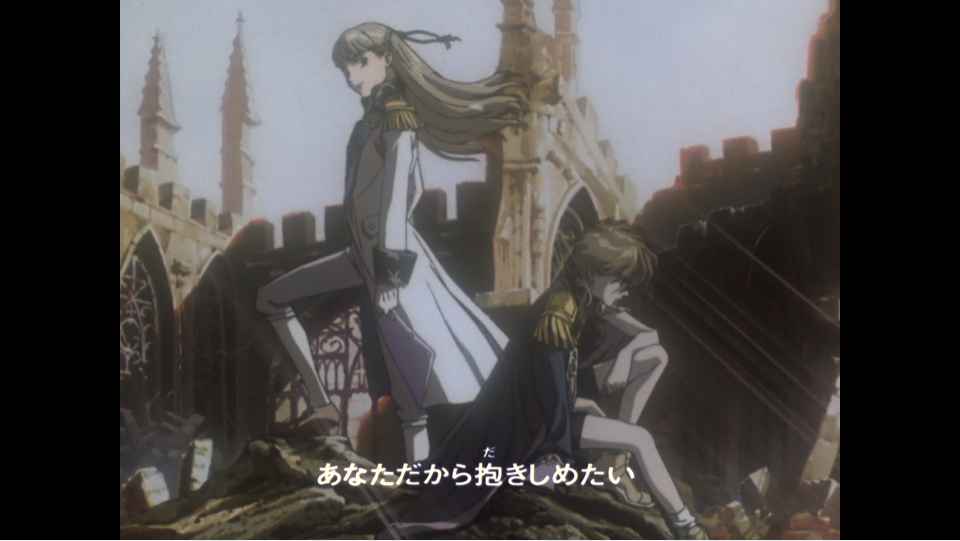
Janine: The way we collaborate doesn't feel like it's about surrendering control in the way a lot of people would believe it does? At least from a player POV, if we feel strongly about how a story should go, especially regarding our characters, that's still encouraged and we often work to try and make those things happen. But there's also an advantage in the fact that every player has their own background, their own influences, their own style of storytelling, that no single individual no matter how broad their own background could replicate. Someone else at the table can come up with ideas that just may have never occurred to me, and the end result will almost certainly be stronger for it.
Andrew: I would second Janine's answer, and say having everyone to build off of and collaborate with makes me feel more confident and competent in doing this. A big part of my personal anxiety is thoughts of "wait what if I'm doing a bad job??" and working in a group like this helps to combat that by 1) seeing other people immediately go "OOOOOOOOH" and get that positive feedback and 2) knowing that if I do have a half-baked or just not great idea that needs work or is better off getting binned, I also get that constructive feedback.
What is your favorite anime, personally? Would be glad to hear from any member of the crew who would feel comfortable answering.
Austin: All-around: Paranoia Agent. Mecha: Zeta Gundam.
Janine: Petshop of Horrors.
Jack: Gundam 0800 War in the Pocket.
Dre: Laid-Back Camp.
Ali: Revolutionary Girl Utena. [I agree with Ali. -Adam]
Sylvia: Ergo Proxy. (Two and a half hours pass.) Actually, I need to be honest my favorite anime is Death Note.
Keith: I thought most of the night about this and I've got to go with the English dub of Yu Yu Hakusho. It's got to be specifically the dub or something else would win, probably the 2011 Hunter x Hunter.
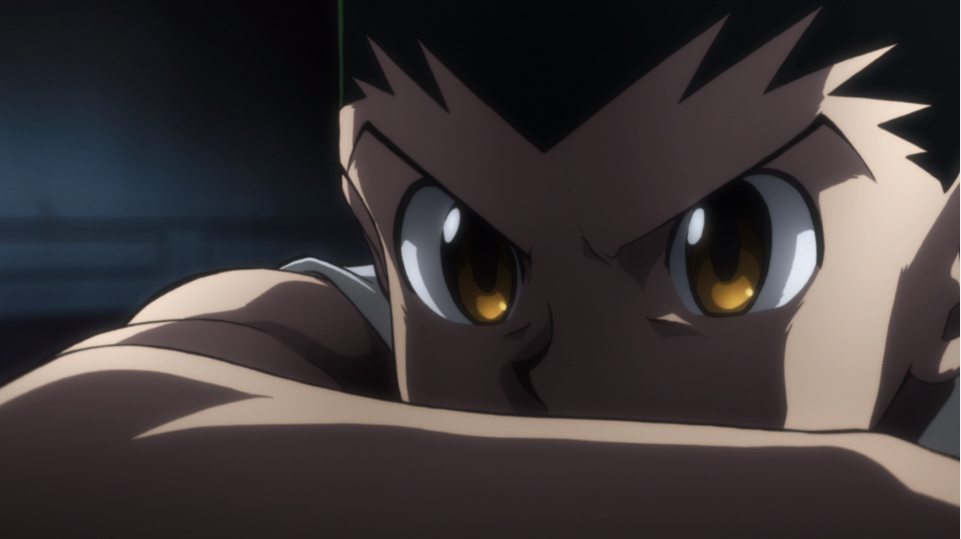
One more thing: if every member of the PARTIZAN season was entrusted with creating their own spin-off of PARTIZAN (in the vein of, say, Yoshikazu Yasuhiko's Gundam: The Origin manga, or the weird Votoms spin-off Armored Fighter Mellowlink) — what would they come up with?
Austin: This is unfair because if I was desperate to do something, I’d figure out how to just do it, whether through a one-shot or a short fiction episode or something else. Because anything I say might be taken as a hint of what is to come. I’ll say that I’d love to fill in more of the blanks of how the setting of PARTIZAN got to be what it is: an anthology series telling even more stories about the long arc of the empire’s rise, told from the perspectives of ordinary people across space. This is already just The Road to PARTIZAN that we did, but more of it.
Janine: A story about Kesh housekeepers in the vein of Kaoru Mori's Emma: A Victorian Romance.
Jack: A story about a squad of Hyphan commandos who have been besieged in a square mile of forest.
Dre: A sports anime about another pilot who entered the Mech Sumo contest at the Kingdom game.
Sylvia: Alise Breka presents: Among Sharks. The story of a Nidean captain escaping from an Apostolos base with the help of the very soldier who shot him down.
Ali: A slice of life story of Apparatus Aperitif, the night mayor, learning the ropes of the job.
Art: I want a Lambic House adventure story. Going out and getting fancy beer ingredients from weird places.
Keith: Not to be self-serving but of course the anime I want is an Equiaxed pirate anime. But what I really want isn't an anime spinoff, it's a podcast spinoff. I want the concurrent Pod Save America podcast of, like, what a bunch of power serving dudes think about politics on PARTIZAN set during the events of the show.
That's it for now. In the meantime, do you listen to actual play podcasts? What is your favorite podcast? What is the best Gundam and why is it Turn A Gundam? Let us know in the comments!
Adam W is a Features Writer at Crunchyroll. When he isn't listening to podcasts, he sporadically contributes with a loose coalition of friends to a blog called Isn't it Electrifying? You can find him on Twitter at: @wendeego
Do you love writing? Do you love anime? If you have an idea for a features story, pitch it to Crunchyroll Features!
For forums sites go to Forum.BuradaBiliyorum.Com
If you want to read more anime-manga articles, you can visit our anime-manga category.

